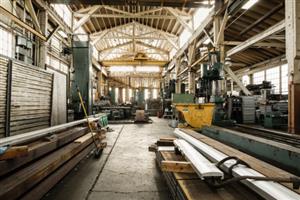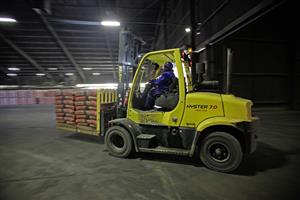There are many different ways to conduct business appraisals. Whether you're hoping to buy an established company and get into business for yourself or sell your company for a fair price, it's important to know how appraisers think about business valuations for industrial companies.
Pros and Cons of Market-Based Business Valuations
The market-based valuation of a company makes sense for some industries. Consider the owner of a semiconductor manufacturer located in California who wants to sell the company and retire on the profits. If there are other semiconductor companies nearby, then a business appraiser can compare the company that will be sold with others like it, getting an idea of the market share and competitive advantage of the business. This makes sense for large companies over niche companies with a handful of employees.
The Gross Revenue Multiple Method may work for small industrial companies. In this method, the appraiser takes the transaction price and divides it by the revenue. The appraiser then finds similar companies and determines a multiple of gross revenue, to which the company's revenue is multiplied by to get a business value. This method is simple and quick. However, it is less nuanced than other appraisal methods, and often best for informational purposes.
Pros and Cons of Asset-Based Business Valuations
The asset-based method can work to determine a fair asking price for the business. An asset approach estimates how much it would the assets would be worth. Subtracting liabilities from assets, the appraiser will come up with a balance. This method works well for companies that have significant physical assets. However, companies that have intangible assets find that an asset-based method may not accurately reflect their worth. Consider the example of an innovative engineering firm. The imaginative engineers who come up with elegant solutions to problems are not captured as a value-add in an asset based approach. If the engineering company were sold to a new buyer, but the existing staff quit, much of the company's true value would be irretrievably lost.
Pros and Cons of Income-Based Business Valuations
If the semiconductor company has a stable earnings flow, then EBITDA or earnings before interest, taxes, depreciation, and amortization can portray an accurate business valuation. If the industrial business is experiencing an inconsistent period 0 good or bad - the discounted cash flow method may work well. Here, the business appraiser estimates the future benefits of the company, then converts them to present value to come up with an fair market value. When determining how much is an industrial company worth using discounted cash flow, an appraiser can come up with a stable and fair value for the business even though circumstances are irregular.
Ultimately, a qualified business appraiser should be able to determine which method makes sense for the given company at a given point in time, correctly calculate a company valuation, and explain the process to key stakeholders. Given what's at stake, it's critical to hire a qualified appraiser who understands the industry.

